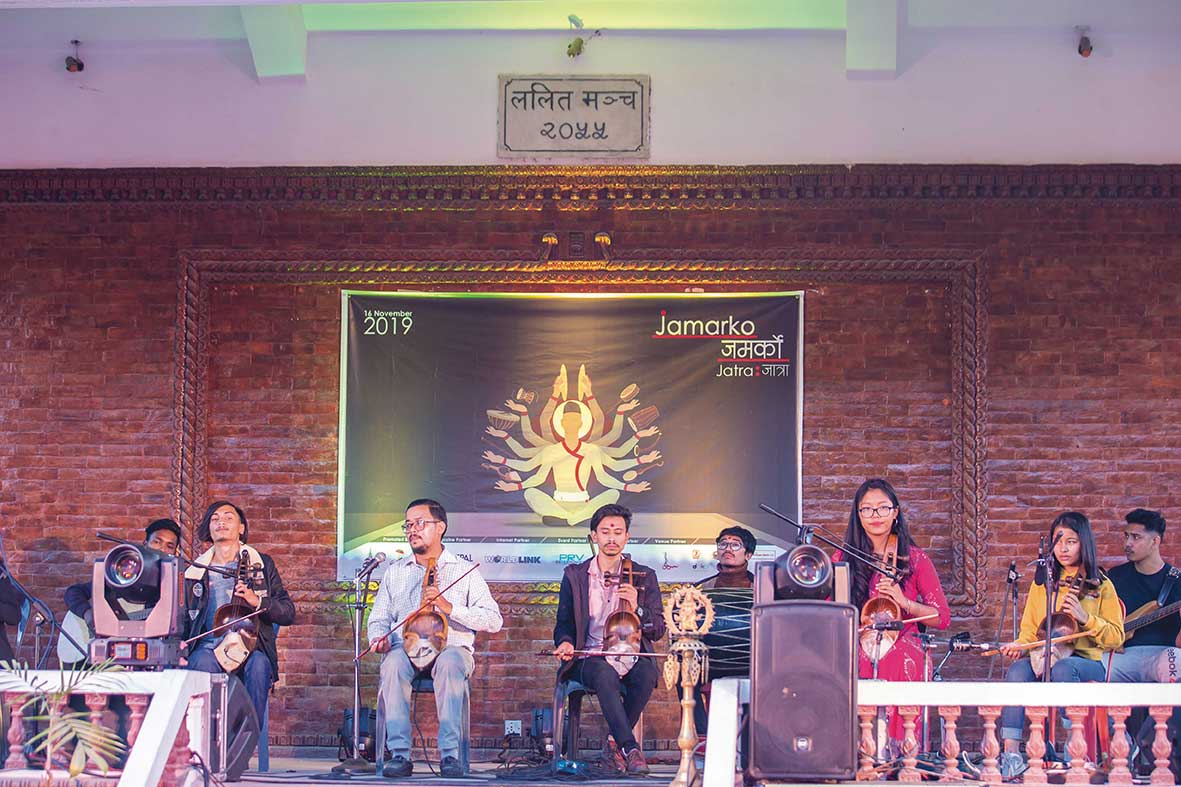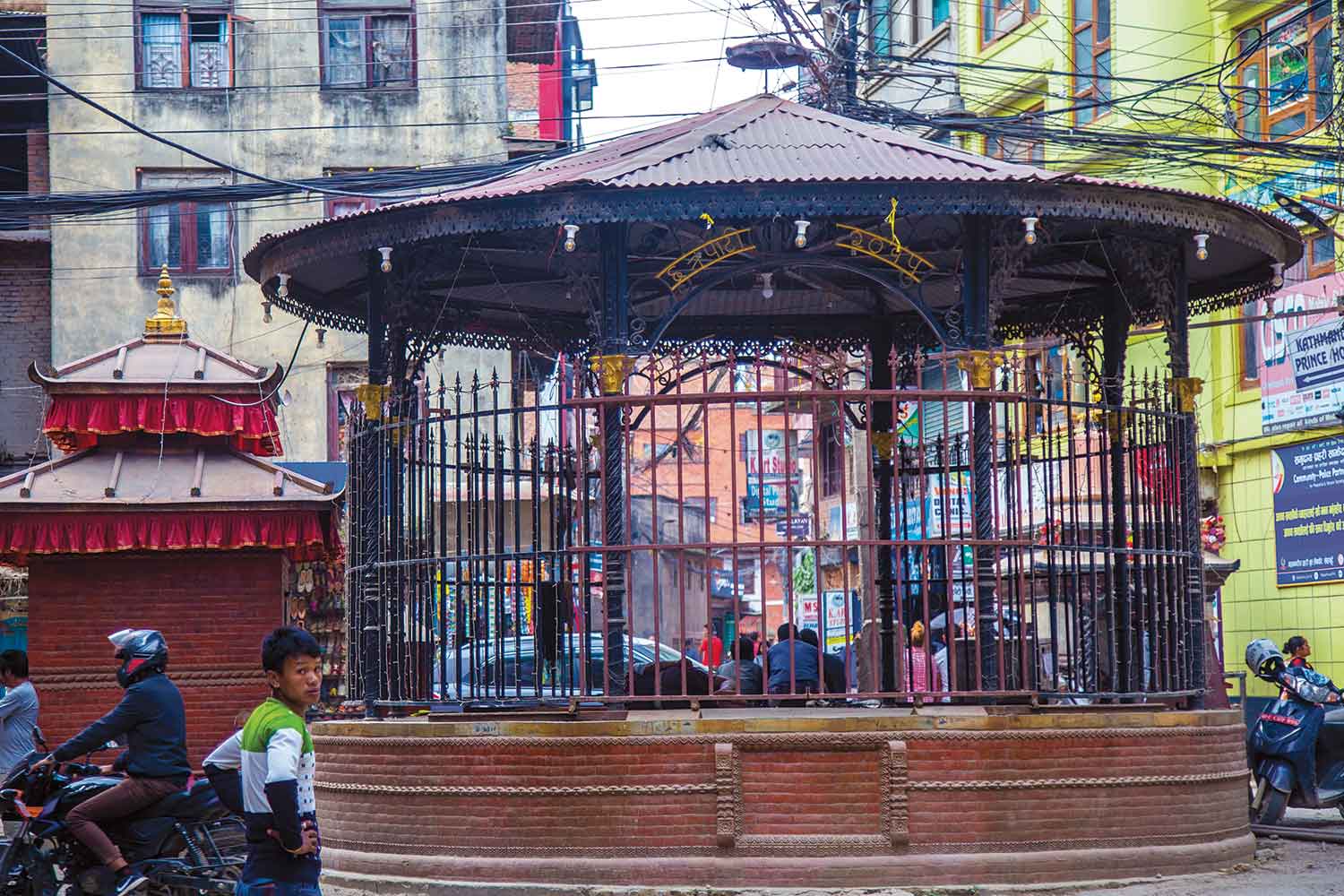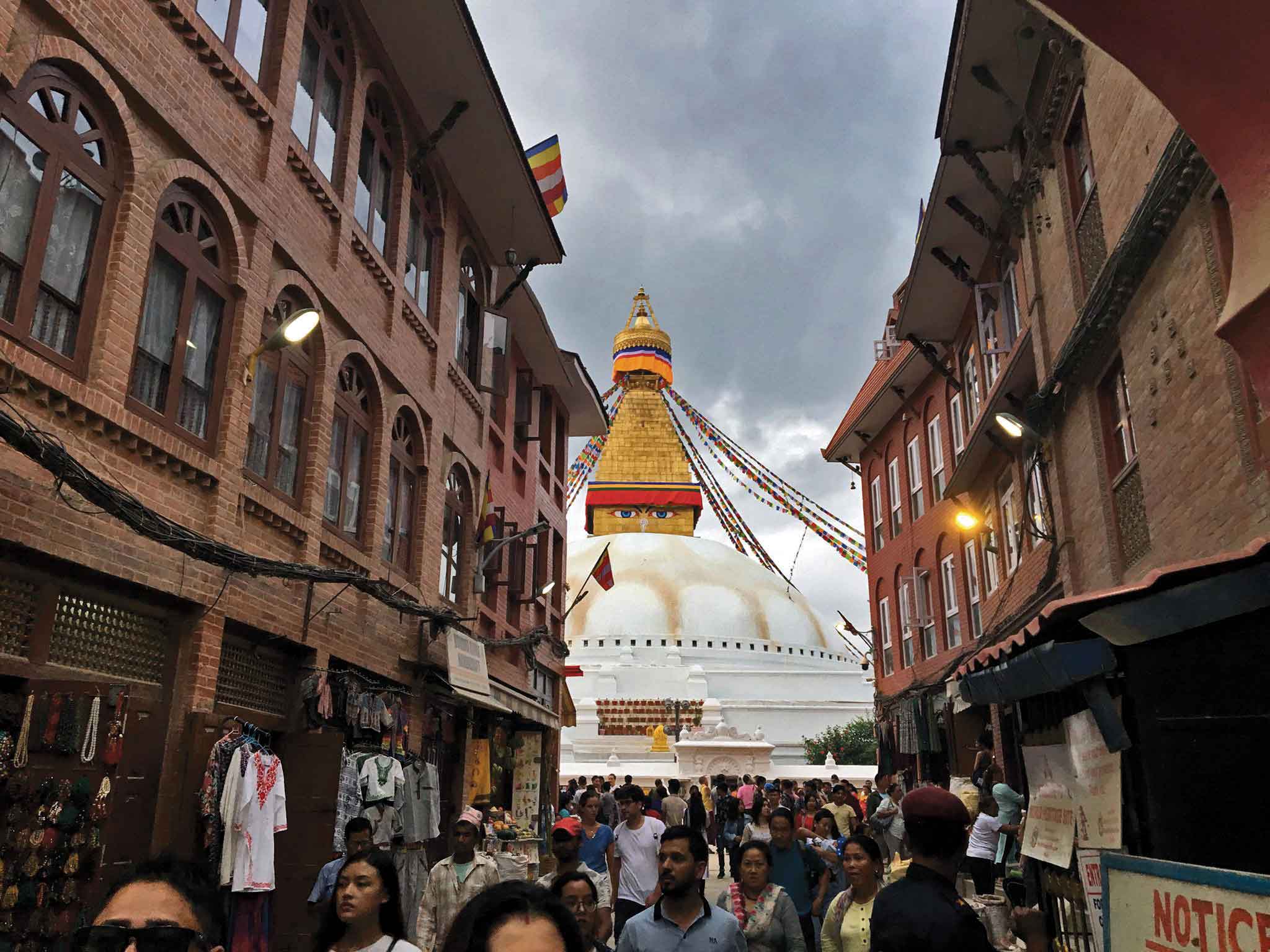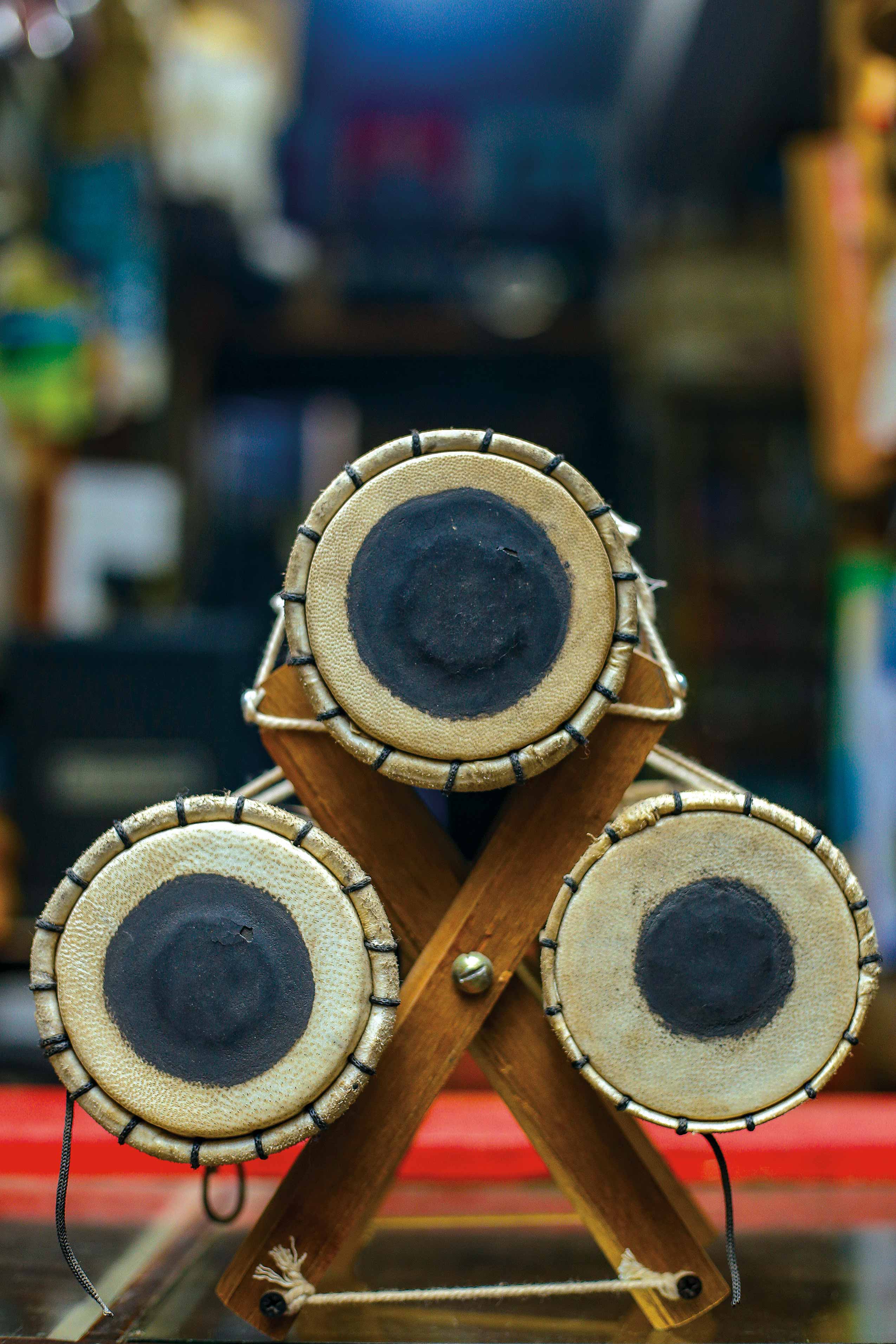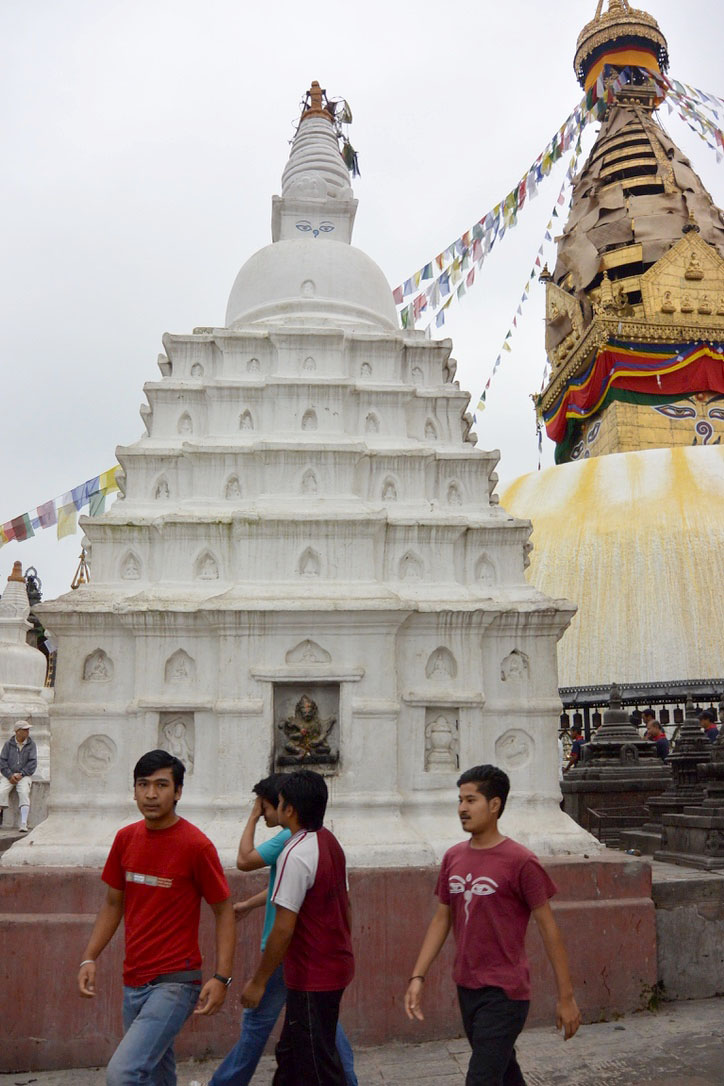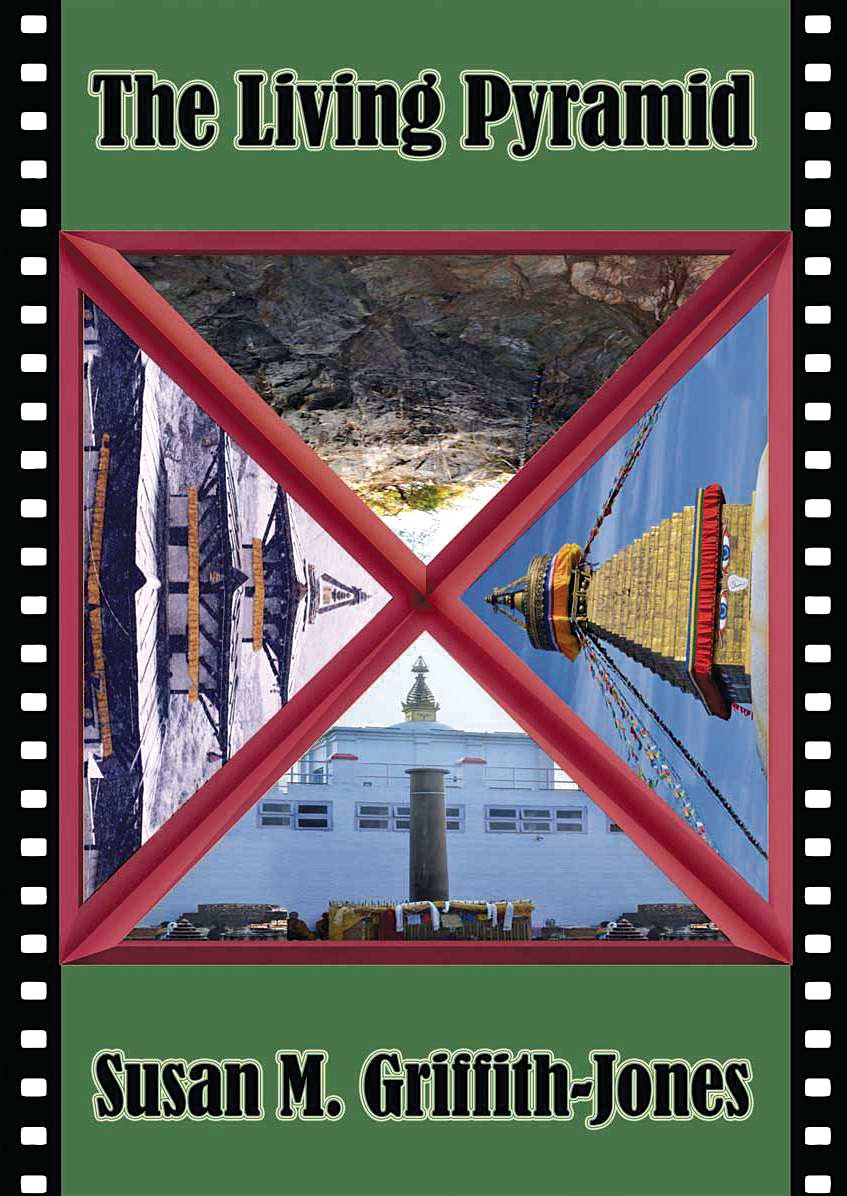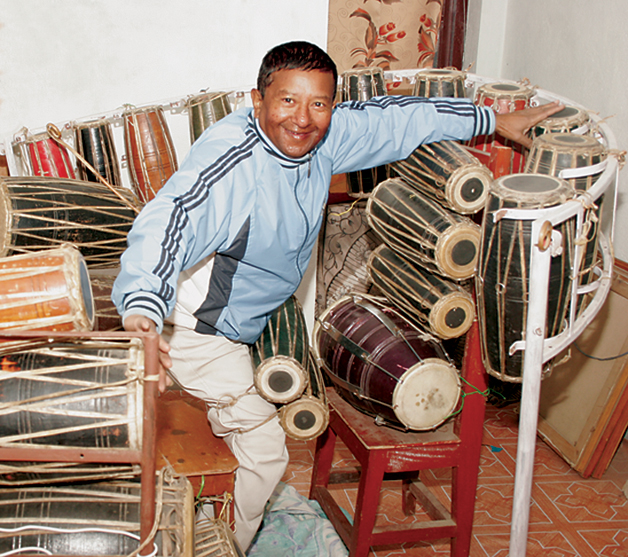
How many maadals, traditional Nepali percussion instruments, can a per-son play at one time? Three at the most one might say. Well it’s 21, yes twenty-one. However, Nhuchhe Bahadur Dongol is quite used to people’s amazement over his performance. By now it is quite normal for him. He understands that one does not encounter people playing 21 maadals as a solo artiste.
Nhuchhe Bahadur Dongol belongs to that rare breed of people who command the right to be a living legend. Born to a family of musicians in 1951 at Tyauda Tole, Nhuchhe Dongol is globalizing the sound of the maadal through his world tours and international collaborations. His mastery of the instrument has earned him international recognition as ‘Best Drummer of Nepal’ (1975, India), ‘Good Artist of Nepal’ (Germany),recognition from the royal family and he was recently awarded the ‘Jyapu Talent Award’ for his decade-long contribution to the promotion of traditional music awarded by the Jyapu Culture Development Trust (JCDT).
Nhuchhe Dongol has played the maadal and achieved fame. Today, students of the Bachelor’s level of Arts in Music are required to read his biography as part of their syllabus. And if you are a student of Padma Kanya Campus pursuing a degree in music, you might find yourself under the tutelage of this Associate Professor of Music.
“Actually, I didn’t start off with maadals. I was a folk dancer before I became a musician. After an unfortunate accident on the dance floor ended my dancing career, I switched to maadal, under the guidance of my father Nhucche Man Dongol” says Nhuchhe.
One of the sad moments in his life was when in 1957, he participated in a program to mark the coronation of King Mahendra, which was held at the Phohora Durbar. He fell off the stage during a dance performance and suffered massive damage to his spine. “I was hospitalized for six months and was plastered from neck down. The doctors gave a strict no-no to my plans of continuing with dancing. But after my request, however, they granted me permission to play the maadal, since my hands had not sustained any serious damages. After the go ahead from the doctors, my father started to teach me the basics of maadal playing then and there in the hospital. That was how I got into playing the maadal” recalls Nhuchhe.
Few people know that it was the late maestro, Gopal Yonzon who came up with the idea of using so many maadals in 1969. Around that time, Nhuchhe had the opportunity to collaborate with him for a cultural performance. Yonzon suggested increasing the number of maadals and adding more color to his repertoire. The idea clicked and for the cultural program, Nhuchhe used ten maadals instead of just one, and from there on, the number gradually went up. On last count, for his tour in Japan, it was 21.
Most people are taken aback when they see so many maadals being played as they have been seeing it as an accompanying instrument. But he is a solo artiste who has taken the maadal to greater heights. It’s a total role reversal of the maadal where it becomes a soloing instrument. That approach is what amazes most people and grabs their attention. “And of course, they are surprised by the sheer number of instruments I play. I’m like a one man orchestra” adds Nhuchhe.
One of his big moments came in 1985 while touring Europe. At the time he played a show in London in honor of Her Majesty Queen Elizabeth, Prince Charles and Princess Diana. Watching him perform live with 21 maadals, the Royals were just amazed. After the show, Her Majesty the Queen looked at Dongol’s hands and asked “How do you manage to play like that.” She was fascinated.
At the moment Nhuchhe is recovering from an injury, but continues to teach in his music school in Samakhushi called ‘Nateshor Sangget Prasinchan Kendra’, He teaches the basics of various Nepali percussion instruments like maadal, kheen and mridanga. “I am teaching three highly talented kids, Sanu Raj Maharjan, Nikesh Maharjan and Sarada Maharjan. They are learning my art. You can say that I am passing my legacy to the younger generation,” concludes Nhuchhe.
For details: 9841231447


